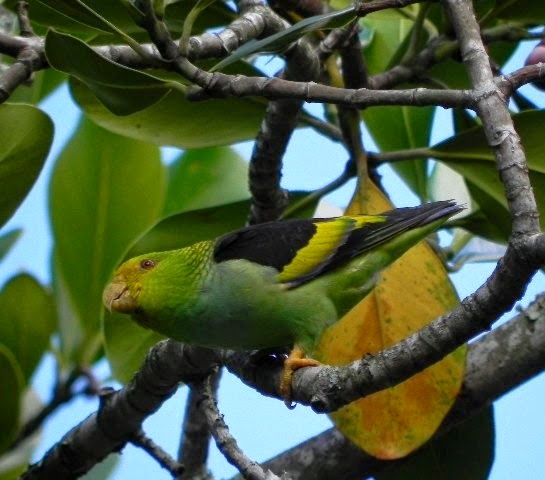 |
| Photo by Cesar Villalba (Flickr) |
Common name:
lilac-tailed parrotlet (en); apuim-de-sete-cores (pt); touit à sept couleurs (fr); cotorrita sietecolores (es); siebenfarbenpapagei (de)
Taxonomy:
Order Psittaciformes
Family Psittacidae
Range:
This species is patchily distributed from northern Colombia, along northern Venezuela, and into Guyana, Suriname, French Guyana and possibly marginally across the border into Amapá, in extreme northern Brazil.
Size:
These birds are 14 cm long and weigh 52-72 g.
Habitat:
The lilac-tailed parrotlet is mostly found in mountain cloud forests, but also in lowland rainforests and rural gardens. They occur from sea level up to an altitude of 1.700 m.
Diet:
They feed on flowers, nectar, buds, berries, seeds and fruits.
Breeding:
Lilac-tailed parrotlets possibly breed in November-March. They nest in large, arboreal termite mounds, or in tree cavities including old woodpecker nests. The female lays 5-6 white eggs, which she incubates alone for about 19 days. The chicks are fed by both parents and fledge 4-5 weeks after hatching, but may continue to receive food from the parents for another 3-4 weeks.
Conservation:
IUCN status – LC (Least Concern)
This species has a large breeding range and is described as fairly common. the lilac-tailed parrotlet is suspected to lose 8% of suitable habitat within its range over the next 15 years, based on a model of Amazonian deforestation, which given its susceptibility to hunting and trapping suggests they are likely to suffer a small decline in the near future.







